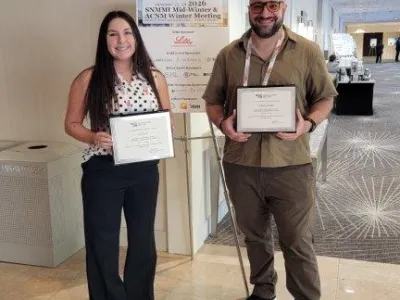The Oregon Institute of Technology (Oregon Tech) Board of Trustees met November 15 and 16 at its Wilsonville Campus for its winter meeting, reviewing initiatives and programs that are positively impacting student retention, enrollment, academic programs, and other areas. The Board also appointed a new president, Dr. Nagi Naganathan, currently Dean of the College of Engineering at the University of Toledo.
Retention Programs Director of Retention at Oregon Tech, Barb Conner, summarized for the Academic Quality and Student Success Committee the recent foundational work in ensuring students persist at Oregon Tech; and reported on some innovative, new programs that are positively impacting retention rates. Targeted outreach to get students to register early and determining the barriers to this and to re-enrolling overall have increased advance registrations dramatically. Conner described the Owl2Owl texting program, which provides peer mentors to students who check in weekly with their student colleagues to help keep them on track academically and ensure they are supported to stay in school. Calling and texting programs have also reduced “summer melt” and help bring students back in the fall. With new resources, Oregon Tech is also working to replicate the success seen in the federally-funded TOP program at the university and extend similar proven strategies to more students on campus through a program called The Rock. This is provided to all first-time freshmen and transfer students at the Klamath Falls campus, and is in the process of being extended to Wilsonville as well. Rock students are assigned a professional academic specialist who they meet with weekly or several times a month, with continued follow up after freshman year. Conner also reviewed current data related to retention broken down by student type and other categories. She expressed excitement about the progress being made in retention and the expected future returns for students and for Oregon Tech.
Student Rec Center Brian Fox, Vice President for Finance and Administration for Oregon Tech, provided an update on the renovation of Oregon Tech’s recreational facilities for students. Included in Oregon Tech’s capital request is $5 million in Article XI-F self-funded bonds for a Student Recreational Center (SRC) within the gym at the Klamath Falls campus, with the estimated cost for the project at $2.7-$3.5 million. Fox noted that this type of bonding is generally supported by the legislature at a very high rate because it has little to no impact on the state budget. The debt service on the bonds would be covered through a combination of students fees – which students have expressed support for during campus forums – and through university funds. Oregon Tech does not need to utilize all of the bonding, but can consider at a later date if the unused portion will be used to renovate other recreational facilities such as the tennis courts. A second campus student forum will be held to complete the due diligence process, and the project scope will be finalized. If the student government expresses support for the project, Oregon Tech will initiate an RFP process and continue to advocate for the bonds in the legislature.
High School Credit Programs Marla Edge, Director of Academic Agreements for Oregon Tech, provided an update on the university’s two accelerated credit programs offered to high school students in the state. One program offers college credits to students who take courses offered in their high schools by a qualified teacher; the other brings students to campus to take courses alongside Oregon Tech college students. Oregon Tech has offered dual credit programs for more than 20 years, and currently works with 36 partner high schools in 12 separate academic offerings. The program has grown very quickly over the last few years as high schools have sought out Oregon Tech to partner, with growth between fall 2015 and 2016 up 46% to more than 1,250 students now earning Oregon Tech credits. The program helps prepare students for the rigor that they will encounter in college, and creates a college-going culture that helps ensure students are successful.
In other business at the Board meeting today, members:
- Approved the recommendation for a new program, Bachelor of Science in Professional Writing, to move forward to the Provost’s Council of the Oregon Public Universities for review and consideration.
- Approved the funding of a quasi-endowment fund of $7.5 million from Oregon Tech’s Education and General budget for the purposes of more effectively and efficiently managing operating and non-operating reserves and maximizing interest earnings.
- Endorsed and approved the Emergency Electrical and Storm Drainage project to undertake $5 million in repairs and authorize the issuance of state funded debt.
- Delegated authority to an F&F Committee member as the authorized representative to begin execution of internal audits; and work with the administration and internal audit to establish a final work plan for adoption in February 2017.
- Heard an update on the tuition setting process, and how this may be impacted by the funding level approved by the legislature in 2017, which is affected by the failure of revenue measures in the recent election.
- Heard an update on the Public University Fund investment and proposed changes in the investment policy.
- Heard an update on the Cornett Hall renovation project.
- Heard a report on Oregon Tech’s information technology services strategic proposal.
- Heard reports from the Faculty Senate; ASOIT Wilsonville; and from Board Committee Chairs on the proceedings of meetings.
- Heard an update on accreditation from Interim Provost and Dean LeAnn Maupin and Interim Dean of Engineering Hallie Neupert.
- Heard an update on the General Education reform process at Oregon Tech, progress to date, implementation schedule, and next steps from Sandra Bailey, Director of Academic Excellence at Oregon Tech.
- Heard an update on Title IX training at Oregon Tech from Nicole Briggs, Title IX Coordinator.
- Heard a report on the makeup of Oregon Tech’s faculty and numbers of faculty and adjuncts in each department and at each campus.
- Reviewed current Board committee assignments.
- Heard an update on the Higher Education Coordinating Commission evaluation of all of the public universities including Oregon Tech.
- Heard an update on fall enrollment and a strategic approach to comprehensive enrollment management from Dr. Steve Neiheisel, Vice President for Enrollment Management.
Heard an update on the legal counsel analysis regarding whether to continue using outside counsel at Oregon Tech or to bring the function internal.









